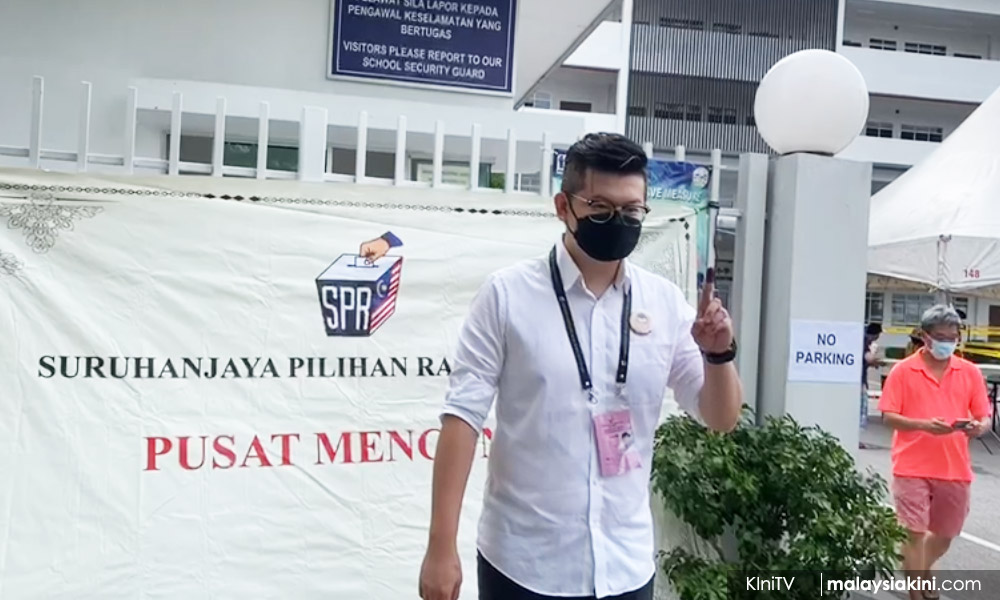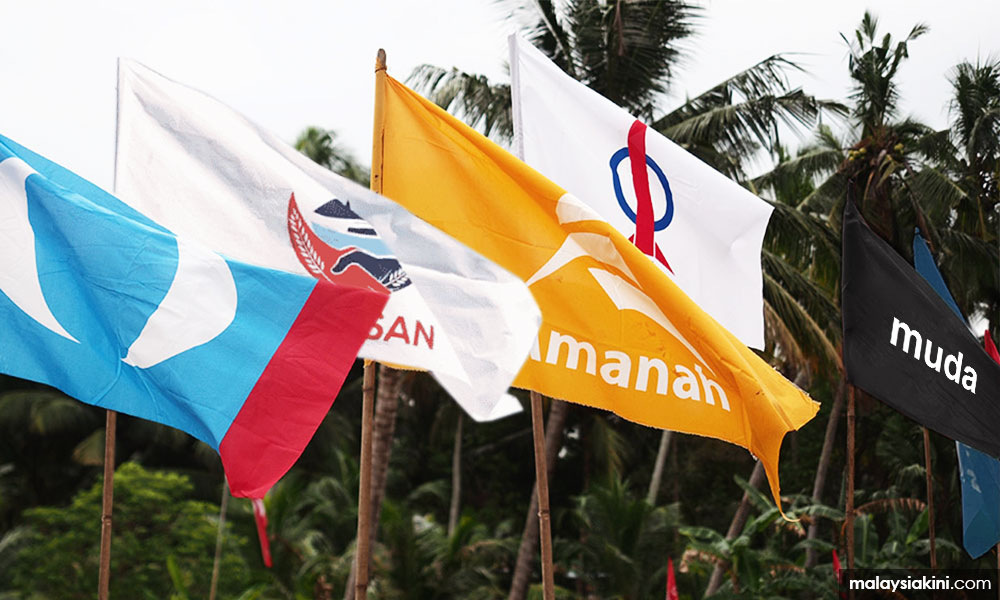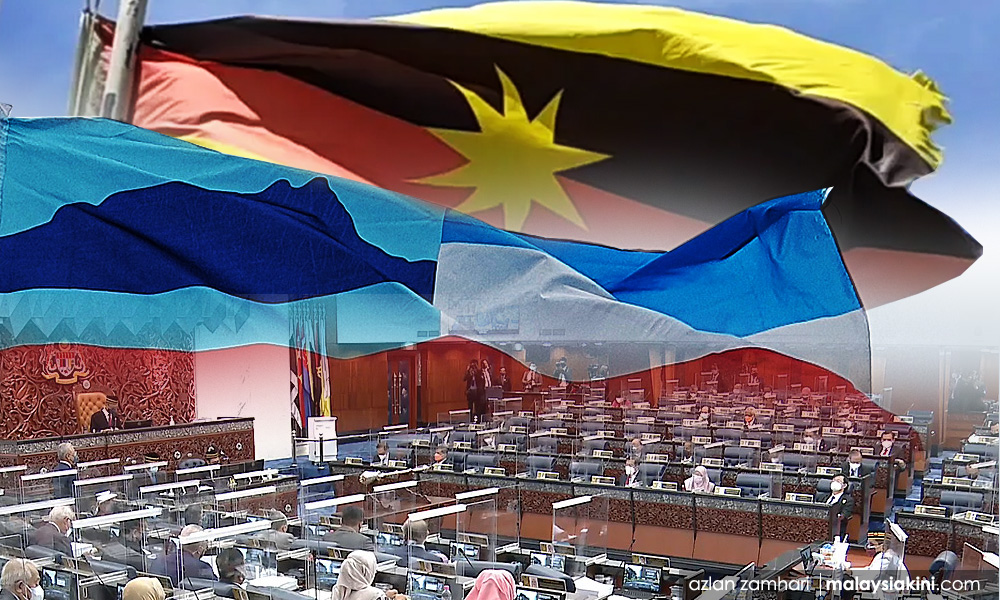INTERVIEW | When the results for the DAP Youth election were rolled out last weekend, there was a historic change at the top of the tree. Pasir Pinji assemblyperson Howard Lee was replaced by Dr Kelvin Yii, MP for Bandar Kuching.
The 35-year-old comfortably won a three-way tussle with two candidates from Selangor – outgoing DAP Youth secretary Eric Teh Hoong Keat and Bandar Utama representative Jamaliah Jamaluddin.
Yii, who trained in medicine in Volgograd, Russia and then in law in the UK, is no stranger to politics' ups and downs, having already tasted great success and bitter defeat.
In 2018, he won his parliamentary seat by a huge margin of 35,973 votes, yet a few months ago, in the Sarawak state elections, he was dealt a bruising loss at the hands of SUPP's Dr Sim Kui Hian in the Batu Kawah state race.
Nonetheless, he's looking forward to the challenges of revitalising and renewing the party's new wing and also of being the first East Malaysian to head the chapter.
In an interview with Malaysiakini, Yii spoke about his hopes for the future.
What are the challenges facing DAP Youth right now?
I believe one of the main challenges we will be facing is inspiring and educating more young people to be interested in politics as political education in our country is still relatively low, especially among young people.
Many are disinterested, apathetic and even unaware of how politics and policies by the government affect their everyday life. So it is also up to us to stay relevant to them, to inspire and give the spirit for young people to realise the power in their hands to affect change and steer our country's direction into the right trajectory.
And this is not a blanket action as each demographic and locality has different sets of needs and interests. That's where DAP Youth in all divisions and states will have to translate our political ideology and principles into a local language that young people can understand, be inspired and be part of the movement.
And it is not just about recruiting young people into a political party, but DAP Youth must play its role as movers and thinkers of society to come up with innovative solutions and policies for issues not just faced by young people but Malaysians as a whole.

What do you think the youth movement can help achieve?
I believe young people throughout history have been the catalyst for change. Walls were broken down, rights restored, and the defenceless found security when young people step up to the plate and be the change that they want to see in the world.
Undi18 itself added an additional 1.2 million youth voters into the electoral roll, and they have a huge say in the outcome of any elections. So now their voices will be taken seriously, and all political parties are paying attention to them.
Now imagine that movement happening in Malaysia among all our young people when they rise to reject corruption, oppression and discrimination and protect the moral fibre of our country. I always believe young people are somewhat the barometer of our country, and they will be the first to rise up and reject if things are wrong in our society.
Do you have any planned initiatives to work with Pakatan Harapan Youth wings, Muda and other groupings?
Yes, there have been initial discussions with other Youth wings, especially in Harapan, and we have a cordial relationship with Muda and even other youth groups.
We all have our own strengths, and we are not here to purely compete with one another, but mainly to complement one another in our strengths and support one another through our weaknesses as we protect the moral integrity and direction of our country.
So there will be further discussions among all parties even as we mobilise and prepare our machinery in view of the upcoming election.

Do you feel any special responsibility as a leader from East Malaysia?
I am the first East Malaysian to take this leadership role in the DAP.
This is something personal to me as I also want to exemplify the best I can how leaders from East Malaysia can also take important leadership positions and play an important role even on a national platform and not merely be limited to a local demographic or even sucked into the often played up "local-party sentiment", especially in Sabah and Sarawak.
Why limit ourselves when we can take leadership on a national platform?
This also shows that my party is a national party that values and recognises the strength and potential of leaders from East Malaysia, and we are not a mere quota to be filled.
The last Sarawak elections were a disappointment for DAP and Harapan. Why is the opposition suffering setbacks even as the state lags behind in development?
There are several factors to this, of course, and one of the main reasons is the disunity among the opposition parties. So when the votes against the incumbent Sarawak BN (now known as GPS) are split, the incumbent, with all its machinery and resources will always have the huge upper hand. This is even true in rural and semi-rural areas.
With that said, there are also weaknesses in the opposition, including my party, that need to be addressed.
Perception, whether fair or unfair, towards us is one thing, but we also need to find new narratives to capture the hearts and imagination of the people of Sarawak.
In the last elections, some small parties made waves by calling openly for Sarawak to chart its own course - is that sentiment rising?
Yes, it is. At least two of the opposition parties that contested in the election openly called for secession from the Federation of Malaysia. Whether we agree with those sentiments or even approach, there are indeed underlying dissatisfaction, historical, economic and social grievances that have to be carefully dealt with.
The main perception is that we are supposedly a rich state blessed with natural resources but yet one of the poorest if not the poorest region in the whole of Malaysia.
While a lot of it is down to bad governance, the dissatisfaction is also building up against the perceived maltreatment of Sabah and Sarawak by the federal government.
With the rise of extreme racial and religious sentiments in West Malaysia mainly played up by politicians, more and more Sarawakians are getting fed up. Thus, there are growing sentiments that we should just chart our own course.

DAP has some quotas for female candidates in party elections - does it need to introduce quotas for non-Chinese candidates to gradually increase the party's multiracial representation? There was only one Malay leader elected out of 30 positions in the central committee contest.
Based on our party's constitution, we are allowed to co-opt members into our leadership line-up as well. So this can help ensure that all communities, and even demographics, are properly represented in our leadership line.
The country is ripe for generational change. So is the party. Will the Youth wing be brave enough to ask leaders to stand down?
I believe our party DAP has given a lot of platforms for us to speak directly to the party leadership and express our views on matters of importance, including having higher youth representation in positions of leadership in every layer of society.
And my party has demonstrated that trust in youth, and that is why we have the highest representation of youth in areas of leadership, whether on a local, state or even Parliamentary level.
Now with a leadership transition even right at the top, we are looking forward to the new approach and leadership direction of our new secretary-general (Anthony Loke).
What states would you like to see more growth in?
One of my hopes is to see us being able to open up DAP Youth divisions and branches on the East Coast. Currently, we do not have branches in Kelantan and Terengganu, and this is something our committee will be looking at.
And of course, I also want to see the Borneo States play its role and see more Borneo leaders brought to prominence, especially on a national platform.
Do you think the party should remove the "socialist' from DAP Youth's official title as the ideology does not seem to be widely practised or known among members?
Our party's core ideology is social democracy which is all about freedom, equality, justice, human rights and solidarity.
So I strongly believe such values resonate with many young people as it embraces a diversity of democratic and progressive viewpoints. So, the name basically, to a certain extent, points to our roots, but what is more important is our policy and ideological stands on issues that affect young people and Malaysians in general, which I believe continues to be relevant in our society today.
Will there ever be a time for a future merger of progressive opposition parties such as DAP, PKR, Amanah and Muda for fresh branding of a truly multiracial national party?
In politics, nothing is impossible but at the current moment, I do not see it happening.
And this is not to say it is a negative, as we all have our own strengths and can play a part in complementing one another as we face our political opponents.
The main focus now is to strengthen ourselves, strengthen the coalition and stay relevant as we capture the hearts and imagination of everyday Malaysians. - Mkini



No comments:
Post a Comment
Note: Only a member of this blog may post a comment.